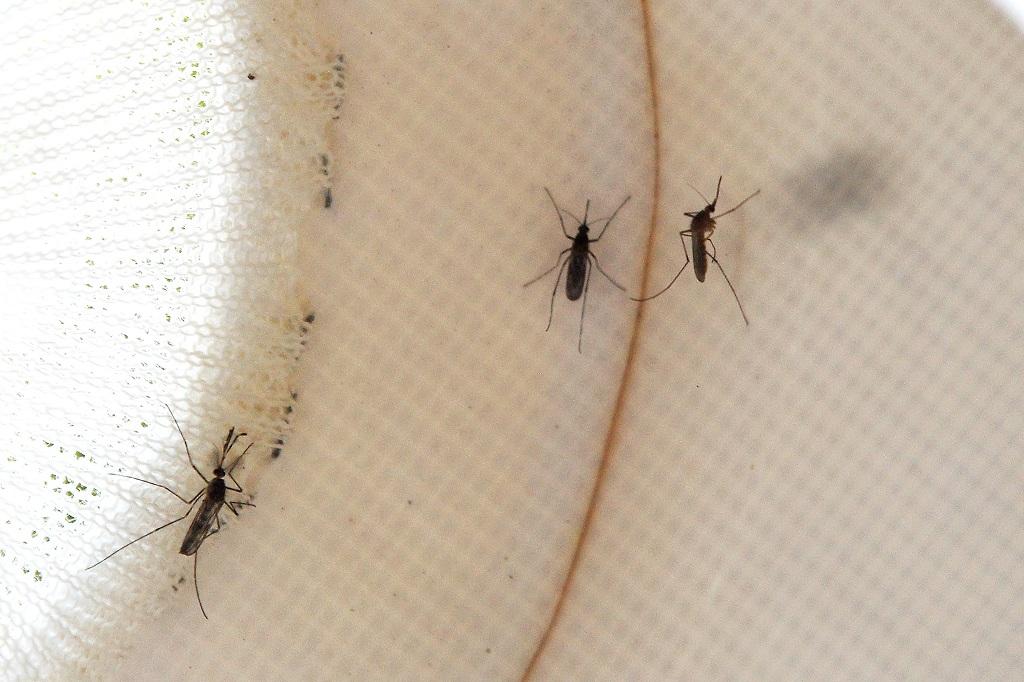Mutant mosquitoes, cure for dengue fever?
Mosquitos are seen inside a trap on June 29, 2012 in Pleasant Hill, California. Reports of mosquitoes with West Nile virus are increasing across the country and several people have been confirmed to be infected by the potentially dangerous disease.
Mutant mosquitoes could be the secret to eradicating dengue fever, a lethal virus contracted from Aedes aegypti mosquitoes, according to Reuters.
The idea, according to the Los Angeles Times, is to "release genetically altered males that mate with females in the wild," so "the larvae produced will die before they reach the point of being able to bite people. It's the females that bite, and thus transmit disease.”
But will these genetically altered insects breed and rapidly evolve into monstrous and grotesque bugs that will destroy the planet Jurassic Park style?
Probably not.
But still, the idea of mutant mosquitoes flying around town frightens Florida residents. About 100,000, actually.
Concerned citizens signed a petition against “introducing several thousands genetically modified mosquitoes into the Florida ecosystem,” Yahoo! News reported.
As Reuters explains, “eradicating one species of mosquitoes could have unintended consequences on the food chain and ecosystem.”
If Jurassic Park taught the thinking world anything it’s that… Ok Jurassic Park didn’t teach the thinking world anything, but there’s a lot of unknowns involved with this proposal by the British biotechnology company Oxitec.
However, it turns out this population control technique was introduced in the Cayman Islands, Brazil, and Malaysia, who Oxitec says saw an 80 percent reduction in the Aedes aegypti population.
Is this just good science? Maybe an irresponsible company? Possibly hysterical residents? Or is it all of the above?
The story you just read is accessible and free to all because thousands of listeners and readers contribute to our nonprofit newsroom. We go deep to bring you the human-centered international reporting that you know you can trust. To do this work and to do it well, we rely on the support of our listeners. If you appreciated our coverage this year, if there was a story that made you pause or a song that moved you, would you consider making a gift to sustain our work through 2024 and beyond?
